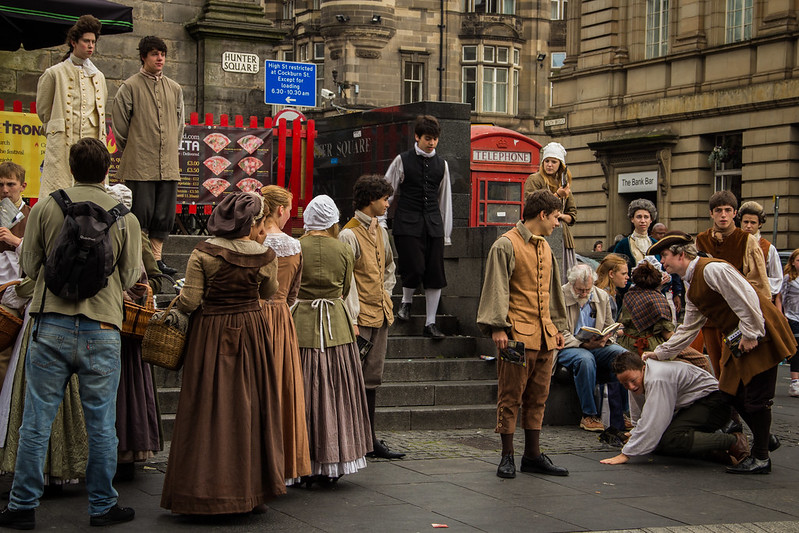
Culture’s Emily Gulbis reminisces the Edinburgh International Festivals colourful past in light of its first cancellation in history
The coronavirus has derailed what would have been the 73rd year of the Edinburgh Festival. Potentially causing a considerable loss to the Scottish economy, which in an ordinary year makes approximately £260 million from the Festival, not to mention its importance as a celebration of culture and the arts.
It began in 1945, with the proposal for an international festival to be held in Britain. The inspiration came from Rudolf Bing, who had previously organised performances for Austrian opera houses before fleeing to England in 1945 to escape the Nazis. His idea was seized by Henry Harvey Wood, a member of the British Council, who then volunteered Edinburgh to be home to the festival. The Lord Provost, Sir John Falconer, the Scottish equivalent of a mayor, backed plans for the festival to take place in Edinburgh. After forming a committee, they then agreed on 1947 as the first year of the festival.
The first Edinburgh International Festival took place on the 24th August 1947
Thus the first Edinburgh International Festival took place on the 24th August 1947, with a starring performance from the Vienna Philharmonic Orchestra, marking a monumental step forward in international relations in the aftermath of World War II.
At the same time as this festival took place, a stage for six Scottish and two English uninvited performers was set up, which later became known as the Fringe. These groups called themselves the ‘Festival Adjuncts’ or the ‘semi-official’ festival. It was not until 1948, when journalist Robert Kemp termed them ‘the fringe of official Festival drama,’ that the name ‘the fringe’ was born.
Over the proceeding years, the Fringe was the place of many innovative performances but also of scandal. This was notably so in 1963, which the papers at the time dubbed the ‘Lady MacChatterley Trial’, following the appearance of arts student Anna Kesselaar wheeled naked onto the stage.

From then on, the Fringe has continued to run alongside the Edinburgh International Festival. In 1981 the Fringe introduced a sense of competition with the Perrier Award. Its first winner was the Cambridge Footlights, which included such future celebrities as Emma Thompson and Stephen Fry. The Fringe continues to be the biggest attraction of the Festival, each year receiving famous names such as Billy Connolly and Eddie Izzard. With the addition of the Fringe comedy, other branches of the arts, for instance events celebrating film, jazz and books then became part of the Edinburgh Festival.
The Edinburgh Festival was cancelled by its organisers for the first time in history
The Edinburgh Festival is now the world’s largest celebration of the arts lasting 25 days, which each year receives both artists and audiences from across the world, with 57,000 performers and 3,500 shows in 2018. As a necessary precaution with the outbreak of the coronavirus, the Edinburgh Festival was cancelled by its organisers for the first time in history. Despite disappointing many, this cancellation was necessary for public safety and so we must instead look forward to the delights of the Edinburgh Festival 2021!
For more news on how COVID-19 is affecting the Arts, take a look at these…
Comments